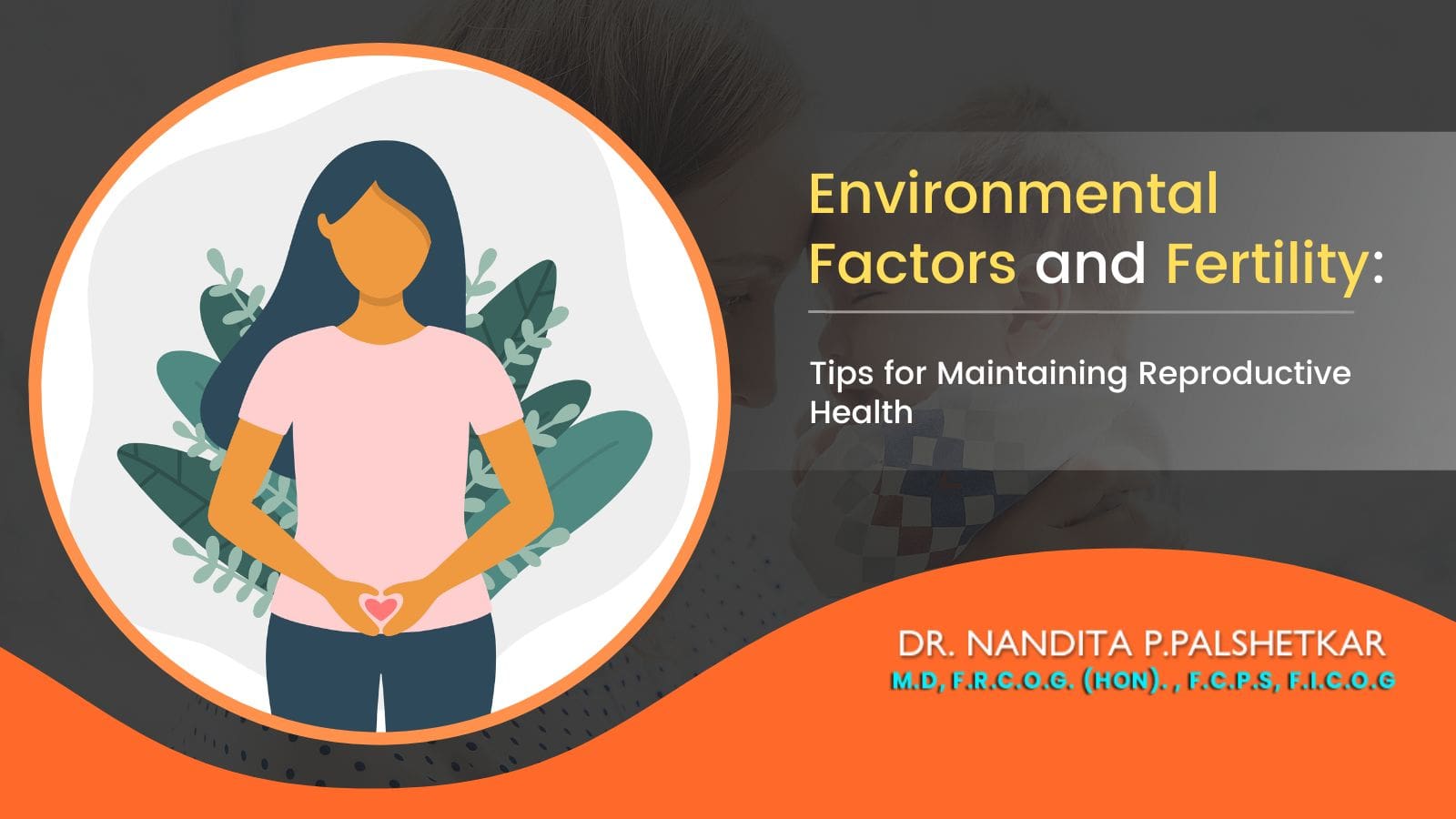

E-Brochure Download Now!

When it comes to reproductive health, there are many factors to consider, and environmental factors are increasingly being recognized as an important factor in fertility. In India, more and more couples are struggling with infertility, with statistics showing that around 12-15% of Indian couples are unable to conceive after one year of trying.
In this blog post, we will explore the environmental factors that may be impacting fertility, the long-term effects of environmental exposures on fertility, and the steps individuals can take to protect their fertility. We will also discuss the role of policy and advocacy in addressing environmental fertility risks and tips for getting involved in advocacy efforts.
A variety of environmental factors, such as air pollution, pesticides, and other chemicals, have been linked to fertility issues.
1. Air Pollution
Air pollution is increasingly becoming a major health problem in India, with the World Health Organization estimating that India has the world's highest levels of air pollution. Besides being linked to health issues like respiratory illnesses and cardiovascular disease, research has also shown that air pollution may cause fertility issues. Studies have found that exposure to air pollution may reduce the number of viable sperm, as well as increase the risk of miscarriage.
2. Pesticides
Another environmental factor that may impact fertility is the use of pesticides. Pesticides are widely used in India, particularly in agricultural areas, and research has found that pesticides can cause sperm abnormalities, low fertility, male-child deficiency, spontaneous abortion, birth malformations, or fetal development retardation.
3. Harmful Chemicals
Many everyday products, such as cosmetics and cleaning products, contain chemicals such as phthalates and parabens, which have been linked to reproductive health issues. Parabens can mimic the hormone estrogen in the body, disrupting normal hormone activity and influencing male and female reproductive system functioning, reproductive development, fertility, and birth outcomes. On the other hand, phthalates have been linked to changes in puberty, the development of testicular dysgenesis syndrome, cancer, and reproductive problems in both men and women.
These findings are concerning, as they suggest that environmental exposures may have impacts on fertility. However, it is important to note that more research is needed to fully understand the long-term effects of environmental exposures on fertility.
While you can take steps to reduce your exposure to environmental factors that may impact fertility, it is also important to address these issues at a policy level. It is important for policymakers to be aware of the potential long-term effects of environmental exposures on fertility, and to develop policies that address these issues. You as a citizen need to get involved in advocacy efforts and raise awareness about these issues.
In conclusion, environmental factors are increasingly being recognized as important factors in fertility. Research suggests that environmental exposures may have long-term effects on fertility, such as decreased sperm count and increased risk of miscarriage. Fortunately, there are steps you can take to reduce your exposure to such things.
If you are concerned about your fertility and would like to discuss your reproductive health, please contact Dr. Nandita P. Palshetkar for a consultation. A pioneer in IVF and infertility doctor in Mumbai and India, she has turned several couples into happy parents over the last two decades. Book a free consultation to become one yourself.